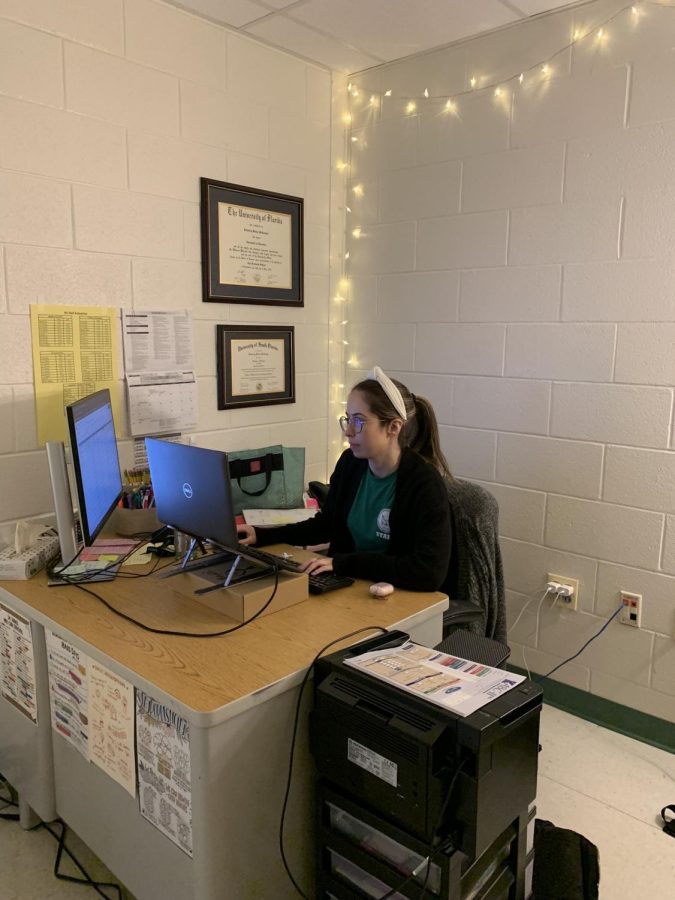Imagine coming home from school and having an awful day because your anxiety is eating you alive. You can’t show that you’re struggling and have to mask it in front of your family. This, unfortunately, is a daily reality for many students at WJ from different cultures.
From school, to jobs, to complicated relationships, the list of factors affecting mental health goes on and on. Students suffer from high-stress levels, anxiety, depression and burnout, but an often overlooked facet of this widespread issue is the influence stemming from familial cultural traditions and norms. While some students have generally laid back or “Americanized” parents, others have to juggle expectations and beliefs imposed upon them by parents of different cultures. While not inherently a bad thing, there are many contradictions between American views about education, gender roles and freedom of expression and the views of other countries around the world.
“In Latin culture, it’s common for girls and boys to be treated differently within a family. It can get aggravating for some girls to see their brothers be allowed to do anything they want, while the girls are ‘protected’ by their parents. This impacts the mental health of Latin American girls as it can make girls feel that they’re inferior, and tends to lead to rebellion rather than granting their parents’ wishes,” senior Alesia Vasquez said.
High expectations and conflicting desires between parents and students often lead to a decrease in mental wellbeing. When the social standards of certain cultures push academic or social results that don’t come easily, the stress of trying to live up to these cultural norms becomes a Sisyphean task.
“My [Egyptian] culture values achievements and success, and this affects my mental health because I stress about doing more than I can and feel a pressure to push myself, and I end up pushing myself too hard at times,” senior Nadeen Orabi said.
Differences in cultural gender roles play a major part in the mental well-being of students, as they are constantly pressured to behave in certain ways that may not align with their own preferences.
“Growing up in a Hispanic household, I’ve learned to see how outdated expectations of us are, especially being a woman. Mental health isn’t something my parents acknowledge as a genuine concern; it’s not real to them. I’m expected to go to school and do well, then come home and take care of my siblings, cook, and clean because that’ll make me a good housewife. Because I wasn’t providing financial support to my family, all I do is go to school and stay home so I don’t have the right to complain. To them, my mental health is nonexistent,” senior Sophia Molina said.
Cultural stigmas and lack of support for existing mental health issues is also a huge problem in first-generation American students’ lives. When parents can’t, or won’t, understand symptoms, life can get pretty tough.
“In America, where the expectations are different from what your Asian parents expect, it can be hard to adapt. You might think one thing is okay because of the people around you, but your parents might think differently. This can be confusing and difficult,” an anonymous student said.
In many cultures, the idea of being mentally ill is constantly dismissed, especially as parents consider their own struggles as being more extreme than what their child is going through. It’s common to hear “when I was your age” or “stop being so sensitive” whenever mental health is brought up.
“Growing up, my dad never acknowledged the fact that I was struggling with depression, and the idea of getting a therapist was overlooked because he was too afraid of what people thought. It was never allowed to be spoken of because there are other people who go through worse things, such as my parents going through multiple wars in the Middle East. Because of this, my depression got worse for a while until my mom finally let me seek help without my dad knowing,” an anonymous student said.
It is definitely safe to say that it’s important to understand the role culture plays in mental health so we, as students, can support each other, regardless of family situations at home.












































